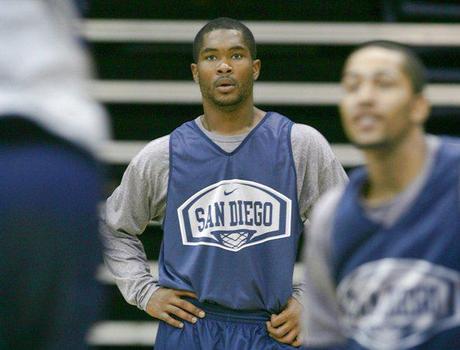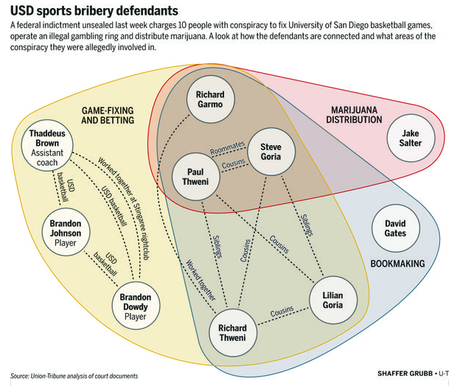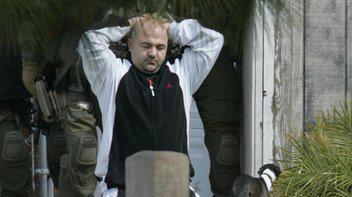 I have previously mentioned my love of sports conspiracies, but there is one scandal that is not getting nearly enough press – especially when compared with all of the other NCAA embarrassments with which we have been inundated lately.
I have previously mentioned my love of sports conspiracies, but there is one scandal that is not getting nearly enough press – especially when compared with all of the other NCAA embarrassments with which we have been inundated lately. On April 8th, a federal grand jury indicted ten individuals, including former University of San Diego assistant basketball coach Thaddeus Brown and two former players, Brandon Johnson and Brandon Dowdy, for conspiracy to commit sports bribery, conduct an illegal sports gambling business, and to distribute marijuana. If convicted, they face up to five years in prison and $250,000 in fines. While the extent of the point-shaving scandal is still unknown, the investigation is ongoing. But there is little doubt that this story should be getting more attention.
 Brandon Johnson, who became San Diego’s all-time leading scorer in men’s hoops on February 13, 2010, finds himself the focus of “Operation Hook Shot,” the FBI’s nickname for its investigation. According to the indictment, Johnson allegedly “influenced the outcome of a USD basketball game for a monetary bribe” that same month, as well as on other occasions. He now plays for the Dakota Wizards in the NBA Development League, where he averaged 6.1 points last season. The indictment does not provide details of which games were fixed or how they were fixed, but it is clear that some shady shenanigans were going on.
Brandon Johnson, who became San Diego’s all-time leading scorer in men’s hoops on February 13, 2010, finds himself the focus of “Operation Hook Shot,” the FBI’s nickname for its investigation. According to the indictment, Johnson allegedly “influenced the outcome of a USD basketball game for a monetary bribe” that same month, as well as on other occasions. He now plays for the Dakota Wizards in the NBA Development League, where he averaged 6.1 points last season. The indictment does not provide details of which games were fixed or how they were fixed, but it is clear that some shady shenanigans were going on.  The conspiracy began because the three “primary” defendants – Steve Goria, Paul Thweni, and Richard Garmo – were all having severe financial problems and saw this as a quick fix (no pun intended). It was then discovered in January 2008 by Border Patrol agents in San Clemente, California. During a routine checkpoint, they found a suitcase stuffed with $104,900 in cash and a bag of weed in Goria’s car. Through wiretaps, the authorities not only discovered a drug trafficking operation, but an intricate web of illegal sports betting. Johnson was still involved with this mess as recently as January 2011, when he solicited an unknown member of the current USD team to fix a game.
The conspiracy began because the three “primary” defendants – Steve Goria, Paul Thweni, and Richard Garmo – were all having severe financial problems and saw this as a quick fix (no pun intended). It was then discovered in January 2008 by Border Patrol agents in San Clemente, California. During a routine checkpoint, they found a suitcase stuffed with $104,900 in cash and a bag of weed in Goria’s car. Through wiretaps, the authorities not only discovered a drug trafficking operation, but an intricate web of illegal sports betting. Johnson was still involved with this mess as recently as January 2011, when he solicited an unknown member of the current USD team to fix a game. And this got me thinking about cheating in sports. It seems that there are four main types of cheating scandals: academic, financial, performance enhancing drug use, and intentional game altering. We hear constantly about Cam Newton and Daddy’s quest for a few hundo thou; we hear about Marvin Austin’s Twitter adventures and about tutors writing papers; we hear about failed drug tests and jersey selling and illegal benefits that no one really cares about. So why don’t we hear more about this – actually changing the outcome of games for personal profit? Is it because USD is not in the ACC or SEC? It seems so much dirtier than the other forms of cheating. In every other instance, the players were being selfish and stupid, sure. But on the playing field, they were still giving their all and trying to be the best athletes they could be. This game fixing scandal is so much worse. I really don’t give a damn if you are secretly driving a BMW or drinking bottles of Dom on the weekends. I do care, however, if the games I am watching (and their outcomes) are a sham.

